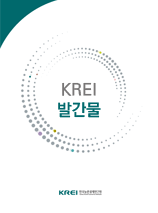
- 2015 Public Opinion Survey on Agriculture and Rural Areas
-

-
○ A growing proportion of people have positive views on agriculture and rural areas, and over a half of urban citizens agree that the investment in agriculture and rural areas should be increased.
- About 66.7% of urban citizens think that agriculture and rural areas are future growth engines, and 77.2% of them consider agriculture important in the national economy. The proportions of the respondents recognizing the pluralistic values of agriculture and willing to bear increased tax burden to maintain them jumped by 4.3%p and 8.6%p, respectively.
- About 50.7% of urban citizens and 73.8% of agricultural workers agree to expand the investment in agriculture and rural areas, while those not agreeing with such an opinion account for 10.9% and 3.1%, respectively.
- About 60% of urban citizens agree with tax benefits for farmers, the figure that doubled from two years ago. And 61.9% of them also agree to increase the budget for welfare in rural areas, showing a 7.7%p increase from the previous year. All these changes show that supportive opinions and awareness of the need for investment in agriculture and rural areas have increased.
○ A growing number of people are willing to return to farming and rural areas, and the interest in living in rural areas is three times higher than that in farming, implying the need for improvement of accommodations for rural tourism.
- About 47% of urban citizens are interested in returning to farming and rural areas after retirement, a 8%p increase from the previous year. This trend is about the hope for healthy and free life rather than about a means of living, which is also proved by the fact that three times more people are interested in living in rural areas rather than farming in person.
- A larger percentage of urban citizens, compared to agriculture workers, have positive views on the effectiveness of and supportive policies for returning to farming and rural areas.
- What urban citizens expect the most to do in rural areas is to participate in local festivals, and various experience activities including weekend farms. The most inconvenient aspects in rural tourism are the conditions of accommodations and cooking, which need improvement.
○ About 40% of the respondents have no uncomfortable feelings about imported agricultural products, while the proportion of people loyal to domestic products is on the decline.
- About 38.6% of urban citizens do not feel uncomfortable with imported products. And 25.7% said they do not prefer imported goods but would buy them due to low prices, and similarly, 25.2% said they would not purchase imported products.
- Regarding all nine commodities in the survey, the proportion of the respondents who would buy imported products if they are cheaper than domestic ones increased from the previous year. The proportions of the respondents who would buy domestic processed food, beef and fruit are relatively low compared to those of the respondents who would buy domestic grains, vegetables and seaweed.
- The loyalty level of consumers who would buy domestic products even though the agricultural market becomes more open and the price of imported goods is cheaper has decreased steadily from 37% in 2009 to 21% in 2015.
○ The satisfaction level of agricultural workers for their jobs is stagnant, while that for rural life is on the steady rise as it quadrupled in the last decade.
- The satisfaction level of agricultural workers for their jobs has been stagnant in the past two or three years, mainly because they are not satisfied with the current financial status largely due to unstable income.
- In contrast, the proportion of the respondents who would recommend farming to their children exceeded 10% for the first time since 1978 when the first survey was conducted.
- The satisfaction level for rural life is 37.4%, 16.4%p higher than the unsatisfaction level. But the satisfaction level for local social welfare facilities turns out to be only 25%, showing the need for the expansion of medical facilities and opportunities for leisure and cultural activities.
- In terms of agricultural policy demands and budget allocation, farmers need compensation for damage caused by FTAs and income stabilization, while urban citizens are concerned more about boosting local economy and improving the competitiveness of Korean agriculture -
목차
요약문
○ A growing proportion of people have positive views on agriculture and rural areas, and over a half of urban citizens agree that the investment in agriculture and rural areas should be increased.
- About 66.7% of urban citizens think that agriculture and rural areas are future growth engines, and 77.2% of them consider agriculture important in the national economy. The proportions of the respondents recognizing the pluralistic values of agriculture and willing to bear increased tax burden to maintain them jumped by 4.3%p and 8.6%p, respectively.
- About 50.7% of urban citizens and 73.8% of agricultural workers agree to expand the investment in agriculture and rural areas, while those not agreeing with such an opinion account for 10.9% and 3.1%, respectively.
- About 60% of urban citizens agree with tax benefits for farmers, the figure that doubled from two years ago. And 61.9% of them also agree to increase the budget for welfare in rural areas, showing a 7.7%p increase from the previous year. All these changes show that supportive opinions and awareness of the need for investment in agriculture and rural areas have increased.
○ A growing number of people are willing to return to farming and rural areas, and the interest in living in rural areas is three times higher than that in farming, implying the need for improvement of accommodations for rural tourism.
- About 47% of urban citizens are interested in returning to farming and rural areas after retirement, a 8%p increase from the previous year. This trend is about the hope for healthy and free life rather than about a means of living, which is also proved by the fact that three times more people are interested in living in rural areas rather than farming in person.
- A larger percentage of urban citizens, compared to agriculture workers, have positive views on the effectiveness of and supportive policies for returning to farming and rural areas.
- What urban citizens expect the most to do in rural areas is to participate in local festivals, and various experience activities including weekend farms. The most inconvenient aspects in rural tourism are the conditions of accommodations and cooking, which need improvement.
○ About 40% of the respondents have no uncomfortable feelings about imported agricultural products, while the proportion of people loyal to domestic products is on the decline.
- About 38.6% of urban citizens do not feel uncomfortable with imported products. And 25.7% said they do not prefer imported goods but would buy them due to low prices, and similarly, 25.2% said they would not purchase imported products.
- Regarding all nine commodities in the survey, the proportion of the respondents who would buy imported products if they are cheaper than domestic ones increased from the previous year. The proportions of the respondents who would buy domestic processed food, beef and fruit are relatively low compared to those of the respondents who would buy domestic grains, vegetables and seaweed.
- The loyalty level of consumers who would buy domestic products even though the agricultural market becomes more open and the price of imported goods is cheaper has decreased steadily from 37% in 2009 to 21% in 2015.
○ The satisfaction level of agricultural workers for their jobs is stagnant, while that for rural life is on the steady rise as it quadrupled in the last decade.
- The satisfaction level of agricultural workers for their jobs has been stagnant in the past two or three years, mainly because they are not satisfied with the current financial status largely due to unstable income.
- In contrast, the proportion of the respondents who would recommend farming to their children exceeded 10% for the first time since 1978 when the first survey was conducted.
- The satisfaction level for rural life is 37.4%, 16.4%p higher than the unsatisfaction level. But the satisfaction level for local social welfare facilities turns out to be only 25%, showing the need for the expansion of medical facilities and opportunities for leisure and cultural activities.
- In terms of agricultural policy demands and budget allocation, farmers need compensation for damage caused by FTAs and income stabilization, while urban citizens are concerned more about boosting local economy and improving the competitiveness of Korean agriculture저자정보
저자에게 문의
구매안내
KREI의 출판물은 판매 대행사 (정부간행물판매센터)와 아래 서점에서 구입 하실 수 있습니다.
판매대행사
- (주)정부간행물판매센터http://www.gpcbooks.co.kr사이트 바로가기
- 서울특별시 중구태평로 1가 25번지
- TEL 02) 394-0337, 734-6818
- FAX 02) 394-0339
판매서점
판매서점 교보문고 http://www.kyobobook.co.kr/ 영풍문고 http://www.ypbooks.co.kr/ 알라딘 http://www.aladin.co.kr/ 활용도 정보
활용도 정보 상세정보 조회 좋아요 다운로드 스크랩 SNS공유 5501 0 8 0 0 -
- Suggestions to Promote the Hometown Love Donation System
- Gouk, Seungyong
- 2022.11.25
- KREI 이슈리포트
-
- Ten Years of Korea-U.S. FTA: focusing on agri-food trade
- Kim, Kyungphil
- 2022.06.09
- KREI 이슈리포트
-
- Impacts of Ukraine-Russia Conflict on Global Grain Prices
- Kim, Jongjin
- 2022.03.31
- KREI 이슈리포트
-
- The Impacts of the COVID-19 on the Korean Agricultural Market
- Seo, Hong-Seok
- 2020.06.05
- KREI 이슈리포트
-
- 10 Agricultural Policy Issues of Korea in 2019
- Jeong, Minkook
- 2019.01.29
- KREI 이슈리포트
-
- State of Korean and Overseas Markets for Environment-Friendly Agricultural Products and Challenges 2018
- Jeong, Hakkyun; Sung, Jaehoon; Lee, Hyeonjeong
- 2018.09.12
- KREI 이슈리포트
-
- Measures to Establish the Water-Energy-Food Nexus for Agricultural Resource Management
- Sung, Jaehoon; Cho, Wonju; Lee, Hyeonjeong
- 2018.09.05
- KREI 이슈리포트
-
- Changes in the Trade of Agricultural and Livestock Products and Implications after Seven Years from the Enforcement of the Korea-EU FTA
- Song, Woojin; Lee, Hyunkeun; Myeong, Suhwan; Yoo, Juyoung
- 2018.06.29
- KREI 이슈리포트
-
- 10 Agricultural Policy Issues of Korea in 2018
- Kim, Byoungryul
- 2018.01.22
- KREI 이슈리포트
-
- Income Changes by Type of Farm Household and Implications
- Woo, Byungjoon
- 2017.11.30
- KREI 이슈리포트
-
- Income Changes by Type of Farm Household and Implications
- Woo, Byungjoon
- 2017.11.30
- KREI 이슈리포트
-
- 10 Agricultural Policy Issues of Korea in 2019
- Jeong, Minkook
- 2019.01.29
- KREI 이슈리포트
-
- 10 Agricultural Policy Issues of Korea in 2018
- Kim, Byoungryul
- 2018.01.22
- KREI 이슈리포트
-
- Job Creation Potential for the Youth and Challenges in the Agricultural Industry
- Ma, Sangjin
- 2017.01.01
- KREI 이슈리포트
-
- Implementation Plan and Implications of International Development Cooperation Projects for Agriculture in 2017
- Heo, Jang
- 2017.04.28
- KREI 이슈리포트
-
- 2016 Production Status and Market Prospect of Eco-Friendly Agricultural Products at Home and Abroad
- Jeong, Hakkyun; Lee, Hyejin; Kim, Changgil
- 2016.11.30
- KREI 이슈리포트
-
- The Impacts of the COVID-19 on the Korean Agricultural Market
- Seo, Hong-Seok
- 2020.06.05
- KREI 이슈리포트
-
- Global Spread of Saemaul Undong for Rural Development in Developing Countries
- Heo, Jang; Lee, Yoonjung
- 2016.11.30
- KREI 이슈리포트
-
- Goals and Strategies to Reduce Greenhouse Gas Emissions in the Agriculture Sector
- Jeong, Hakkyun; Kim, Changgil
- 2015.11.03
- KREI 이슈리포트
-
- 70 Years' Achievements and New Challenges of Korean Agriculture and Rural Communities
- Song, Miryung; Moon, Hanpil; Kim, Meebok; Seong, Jooin; Lim, Jieun
- 2015.09.15
- KREI 이슈리포트
의견남기기


